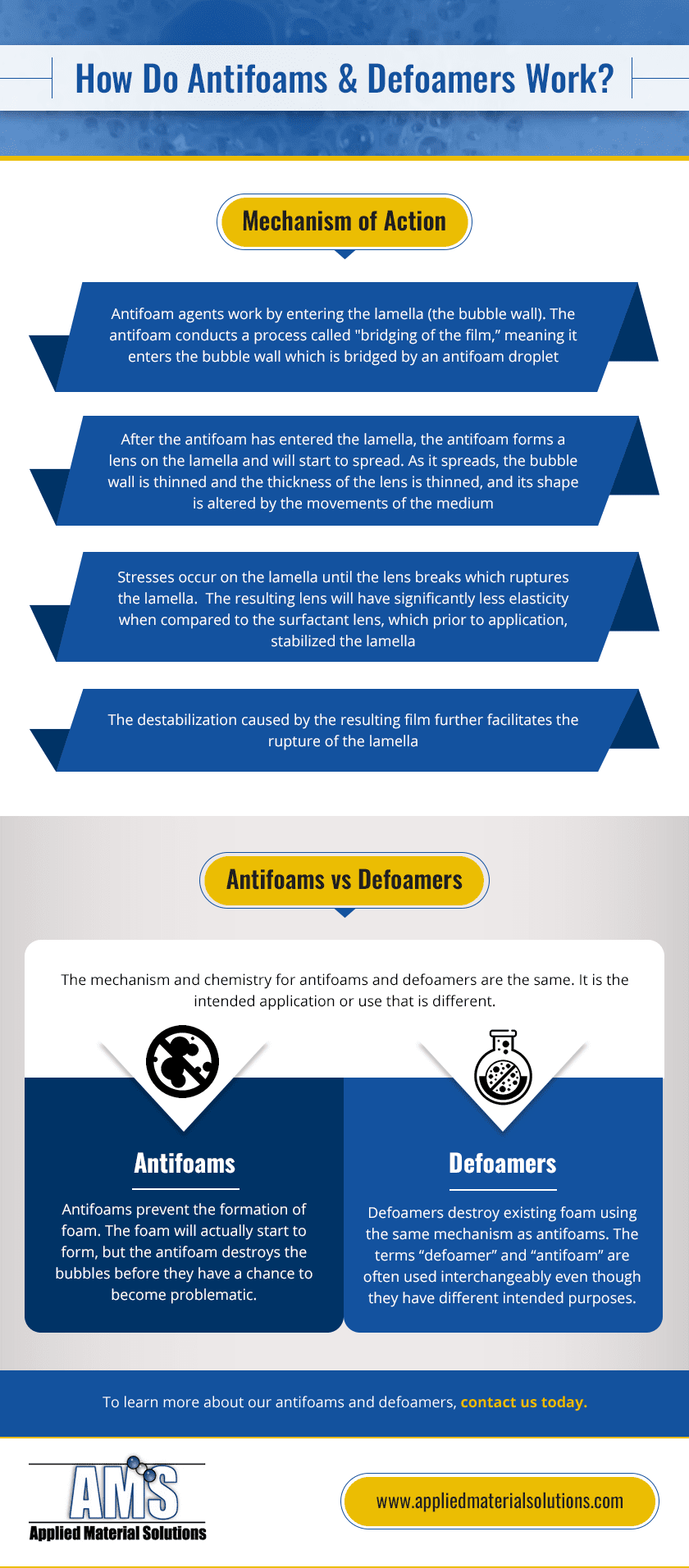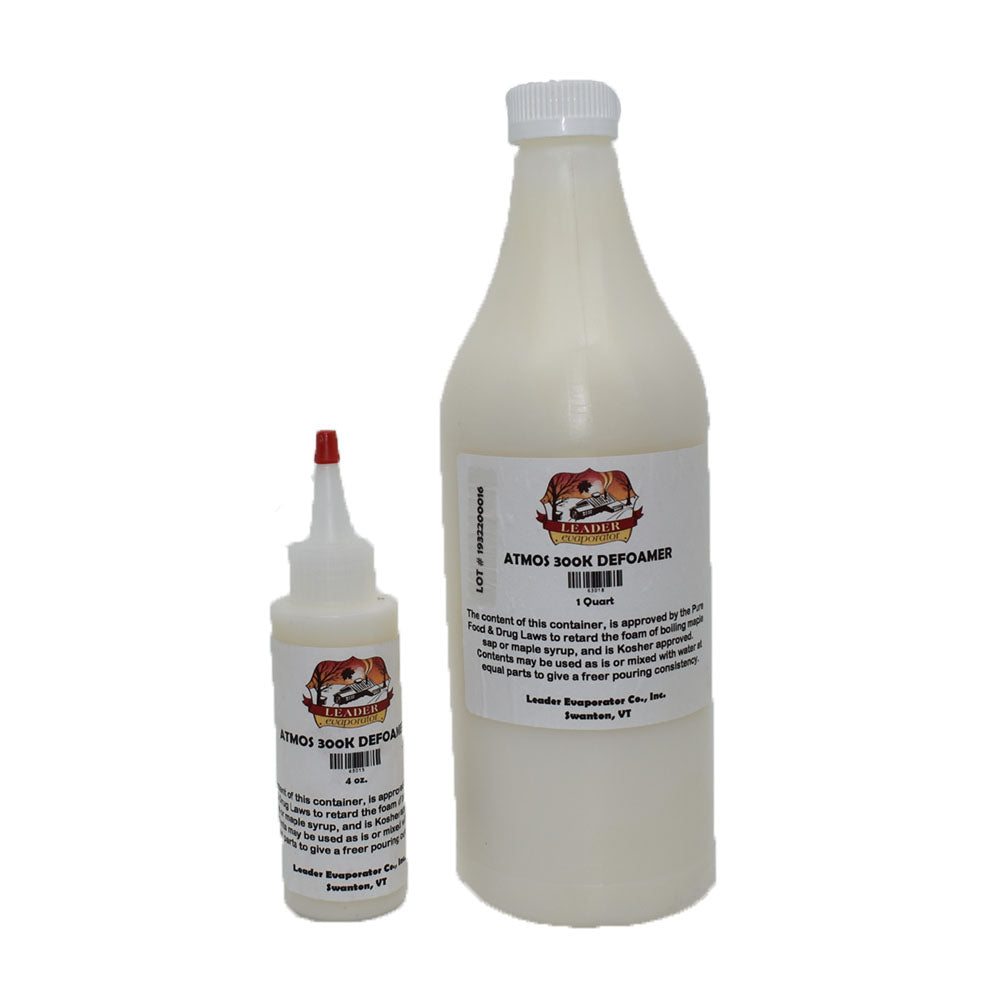The Importance of Defoamers in Industrial Processes and Applications
The Importance of Defoamers in Industrial Processes and Applications
Blog Article
Discover the Leading Benefits of Using Defoamers in Industrial Processes
The utilization of defoamers in industrial procedures presents a variety of compelling advantages that can improve operational performance and product top quality. By efficiently controlling foam manufacturing, these representatives not just enhance material flow however likewise contribute to substantial cost decreases and boosted sustainability. Their application covers multiple markets, which questions regarding their role in mitigating environmental effect while guaranteeing consistent outcome. Comprehending these advantages is crucial for markets intending to refine their processes. The implications of taking on defoamers might be much more profound than at first perceived. What particular advantages could your organization harness?
Boosted Refine Efficiency
Enhancing industrial processes often includes addressing lathering issues, which can impede functional performance. Foam formation can disrupt the correct functioning of devices, reduce the efficient utilization of resources, and make complex the monitoring of important specifications. By applying defoamers, sectors can successfully minimize these issues, bring about streamlined operations and enhanced performance.
Defoamers job by destabilizing the foam framework, permitting fast collapse and substantial decrease in foam volume. This activity not just enhances the flow of products with equipment, such as mixers, pipes, and activators, however additionally lessens interruptions brought on by foam overflow. Subsequently, equipment downtime is decreased, enabling for a more continuous and reliable production process.
Additionally, using defoamers can bring about minimized energy intake. With less foam to manage, pumps and compressors can operate more effectively, resulting in reduced operational prices and a general improvement in procedure throughput. Ultimately, the calculated use of defoamers not only addresses instant foaming challenges but additionally adds to a much more reliable industrial environment, fostering an affordable benefit in a requiring market.
Improved Item High Quality
The integration of defoamers in commercial processes plays a vital function in boosting product quality. By efficiently managing foam formation, defoamers add to the consistency and uniformity of end products. Excessive foam can result in aeration, which adversely influences the appearance and stability of solutions, particularly in industries such as food and finishes, drugs, and beverages.

In addition, defoamers promote better mixing and diffusion of ingredients, resulting in homogeneity in formulas. This is vital in applications where specific active ingredient ratios are vital for efficiency and security. In addition, the elimination of foam can lower the threat of contamination during production, further safeguarding item honesty.
Ultimately, by boosting product high quality, defoamers not just improve customer satisfaction yet also enhance brand track record. Their role in preserving high-grade criteria emphasizes their relevance in modern-day industrial processes.
Expense Reduction Benefits
Applying defoamers in industrial processes can lead to significant expense decrease benefits. By properly managing foam formation, defoamers decrease item loss during production, consequently optimizing material use. This decrease in waste converts directly into reduced raw product costs, improving total operational performance.
Moreover, the usage of defoamers can lower power usage. Extreme foam can hinder tools performance, leading to enhanced power requirements to preserve production degrees. By minimizing foam, defoamers facilitate smoother procedures, allowing machinery to run much more effectively and reducing power expenditures.

In addition, defoamers can shorten processing times. By making use of defoamers, sectors can improve their procedures, leading to faster turn-around times and improved throughput.

Environmental Effect Reduction
In commercial processes, the usage of defoamers plays a critical function in mitigating ecological effects related to foam generation. Foam can bring about significant operational inadequacies, leading to enhanced discharges and waste generation. By properly regulating foam, defoamers help keep process effectiveness, consequently minimizing the general environmental impact of operations.
Additionally, too much foam can overflow control systems, causing spills that may infect dirt and water sources. Defoamers help decrease this risk by making certain that frothing does not go beyond suggested limitations, advertising compliance with ecological laws. This positive technique not just safeguards environments yet additionally enhances the sustainability of commercial practices.
Furthermore, making use of defoamers can reduce energy usage in numerous processes. defoamers. Minimizing foam formation decreases the need for added energy-intensive actions, such as boosted frustration or pumping, which may or else be essential to handle foam. Subsequently, the adoption of defoamers straightens with wider sustainability objectives by advertising energy performance while minimizing the carbon footprint of commercial activities.
Eventually, integrating additional reading defoamers into industrial procedures is a tactical measure that supports ecological stewardship and accountable source administration.
Flexibility Throughout Industries
Throughout various sectors, defoamers show amazing convenience, adjusting to the certain needs of varied applications. In the food and drink sector, as an example, defoamers are crucial to maintaining item high quality by preventing foam development throughout processing, which can impact texture and flavor. In a similar way, in the pharmaceutical sector, defoamers ensure the security of formulas, enhancing product effectiveness and uniformity.
In the chemical manufacturing realm, defoamers assist in smoother procedures by minimizing foam in response vessels, hence boosting yield and lowering downtime. The paper and pulp market counts on defoamers to enhance the efficiency of pulp processing and paper production, guaranteeing ideal product integrity. In addition, in wastewater therapy centers, defoamers play a crucial function in regulating foam during oygenation processes, leading to enhanced therapy results.
The versatility of defoamers encompasses the oil and gas market, where they assist in managing foam in boring fluids and production procedures. By tailoring formulations to satisfy details industry requirements, defoamers function as important tools that improve official source operational efficiency, product top quality, and overall procedure performance across a wide range of sectors. Their adaptability underscores their worth in modern commercial applications.
Final Thought
To conclude, the application of defoamers in commercial processes offers numerous benefits, consisting of boosted effectiveness, boosted item quality, significant cost decreases, and positive environmental impacts. Their capacity to efficiently regulate foam development adds to operational continuity and resource optimization. The adaptability of defoamers throughout diverse sectors highlights their important role in promoting sustainable techniques and earnings. The combination of defoamers stands for a critical strategy to addressing obstacles connected with foam management in different manufacturing settings.
Ultimately, the tactical usage of defoamers not just addresses immediate foaming difficulties however additionally adds to an extra efficient commercial ecosystem, cultivating a competitive benefit in a demanding market.
In industrial processes, the usage of defoamers plays a vital role in mitigating environmental effects associated with foam generation. By successfully regulating foam, defoamers help preserve process effectiveness, consequently lowering the total ecological impact of procedures.
In addition, in wastewater therapy facilities, defoamers play a vital role in controlling foam throughout oygenation processes, leading to improved treatment end results.

Report this page